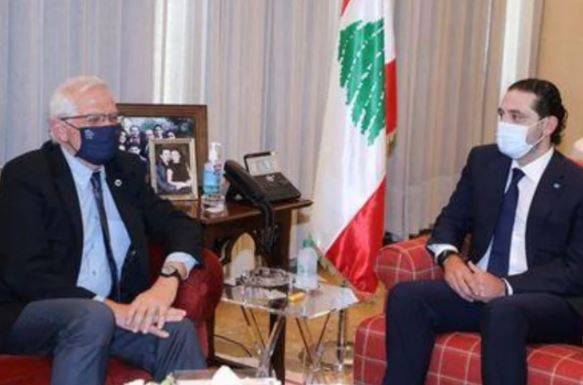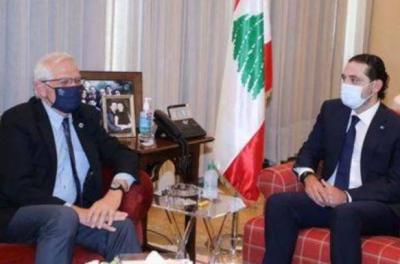European Union foreign policy chief Josep Borrell said on Sunday that the core of the government crisis in Lebanon stems from the rivalry among Lebanese leaders for power. He urged them to set aside their differences and form a government, or risk a complete financial collapse and facing sanctions. After talks with Lebanese President Michel Aoun, Prime Minister-designate Saad Hariri, and Speaker of Parliament Nabih Berri, Borrell indicated that he sent a clear message that some leaders may face sanctions if they continue to obstruct the steps toward forming a new government and implementing urgently needed reforms.
He stated, "The country is facing significant financial problems, and to resolve the economic crisis, they need a government... Any ship amidst a storm needs a captain and a crew to work the system; otherwise, it will sink." He told a group of reporters before leaving Beirut, "It is clear that there is a struggle for the distribution of power. I must say there is also a significant level of distrust."
Borrell explained that Lebanon needs a government with technical capabilities and real authority to avoid the failures of the outgoing Hassan Diab government, which he said presented a sound financial reform plan, but politicians placed obstacles in its way. The Lebanese currency, the lira, has lost 90 percent of its value. More than half of the population is suffering from poverty amid rampant inflation, power cuts, and shortages of fuel and food.
The crisis has worsened due to political stagnation, with a dispute ongoing between Hariri and Aoun for months over the formation of a new government. Borrell noted that external aid would not flow without a government that works with the International Monetary Fund and implements reforms to address corruption and mismanagement of funds. However, he added that the leaders he met were pessimistic about achieving progress.
He stated that inaction would lead to a decrease in foreign reserves, leaving the country without foreign currencies to pay for essential goods or face shortages in hospitals. He emphasized that his discussions highlighted the deep divisions among Lebanese sects, whether Christian, Sunni, Shia, or Druze, and the way power is shared. "This country has a clear problem with its governance system," he said.
Some EU countries, led by France, have threatened to impose sanctions in an effort to push politicians to end the stalemate. A diplomatic note from the European Union reviewed by Reuters indicated that the criteria for imposing sanctions would likely include corruption, obstruction of government formation efforts, financial mismanagement, and human rights abuses. The bloc has not yet decided on the approach it will take. France has stated that it has imposed restrictions on the entry of certain Lebanese officials whom it sees as hindering efforts to address the crisis, without naming them.
Borrell, who will report to EU foreign ministers on Monday, said, "Sanctions are a possibility that will be considered, and we strongly wish not to use them. But we cannot remain in this situation."




